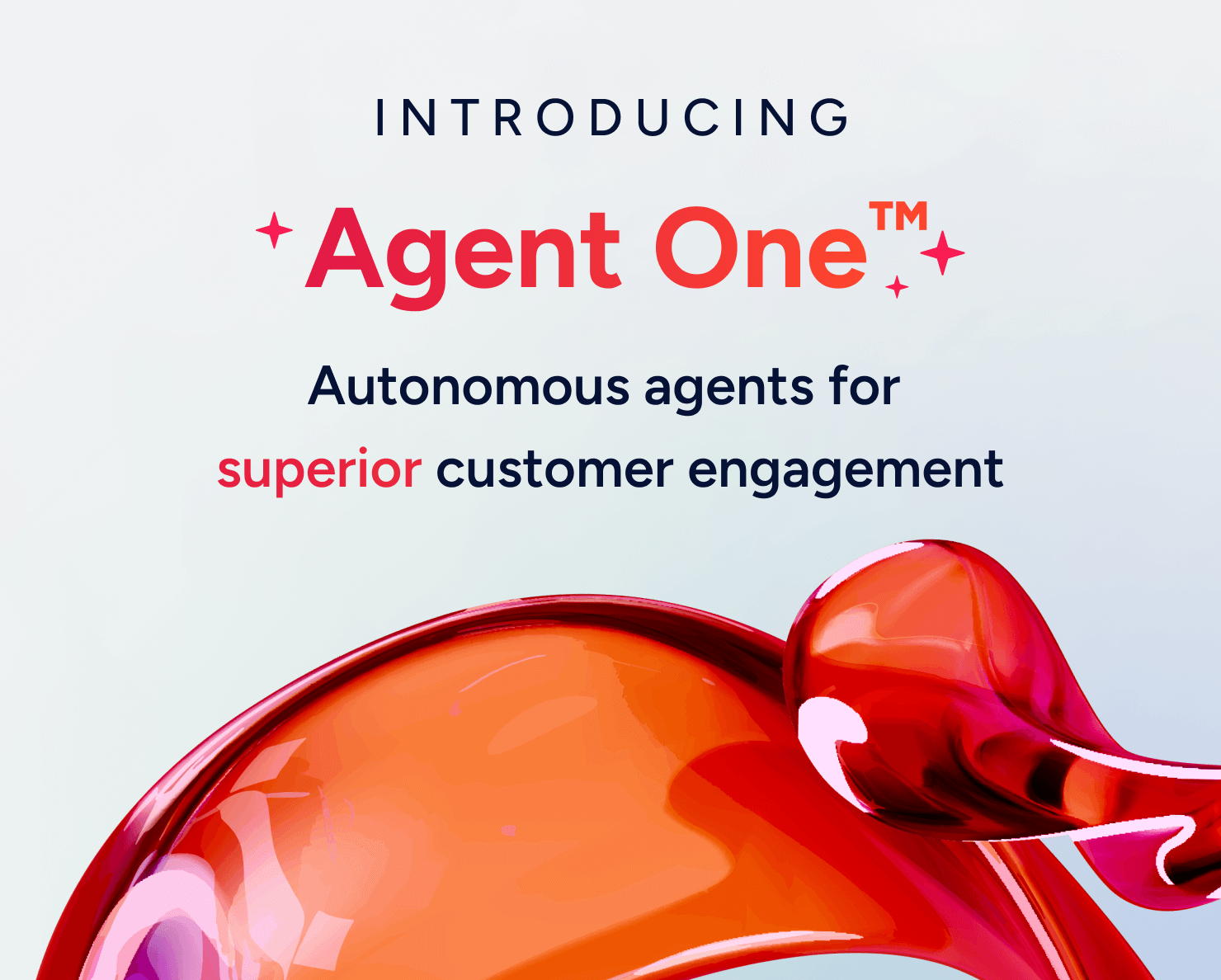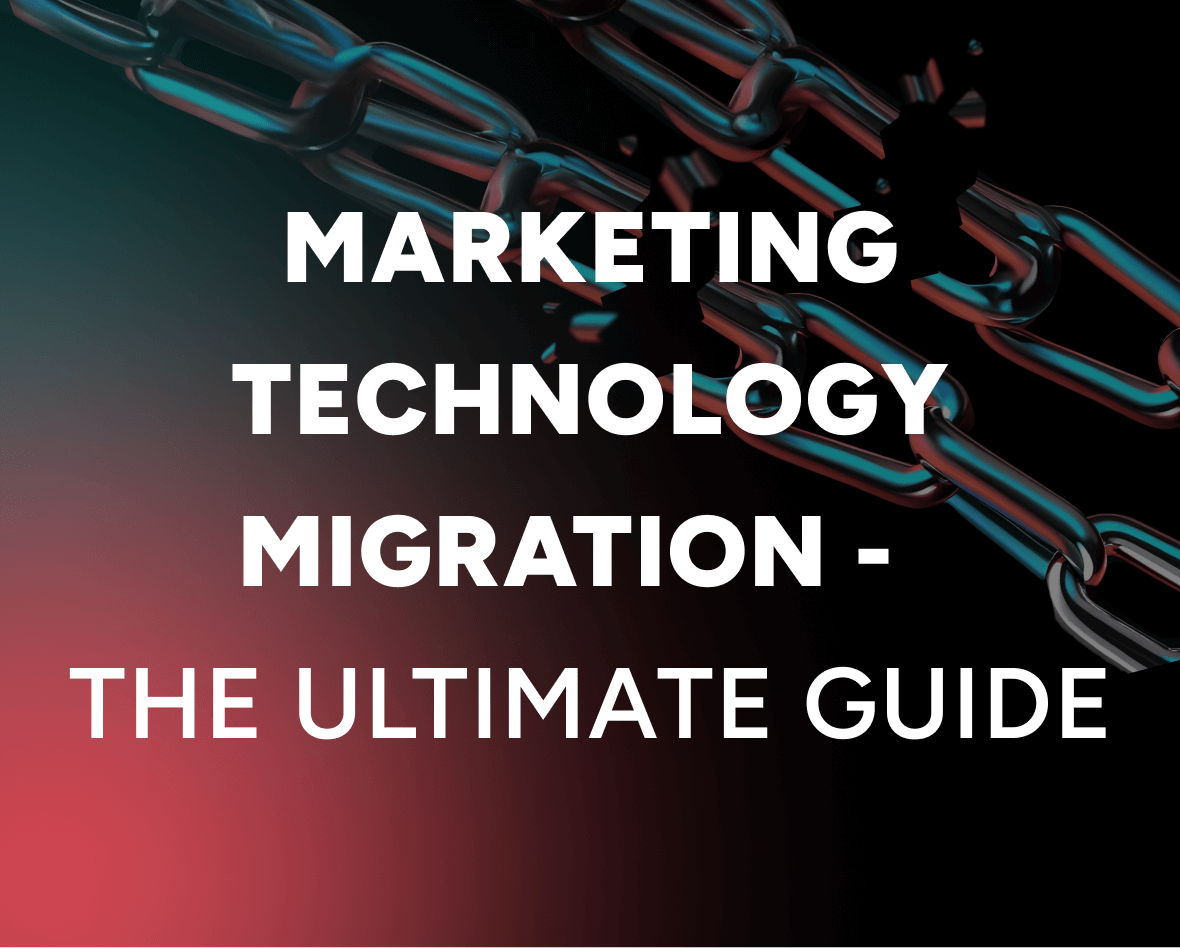The best conversational AI platforms to elevate customer experiences
Conversational AI uses artificial intelligence—primarily conversational chatbots—to engage customers in human-like, two-way interactions. These conversations can happen via text messages or voice assistants.
Updated on 30 Jan 2025
Think talking with a robot is sure to be a passing fad? Think again. Research predicts that the conversational AI software market will grow from $13.2 billion in 2024 to a whopping $49.9 billion by 2030.
This technology (along with conversational marketing and personalized customer experiences in general) is here to stay. It’s up to businesses to adapt and keep pace with customer expectations that place a high value on instant service and targeted interactions.
Cue the search for the best conversational AI platforms. This guide breaks down what you need to know as you explore the top conversational AI platforms—including their benefits, key features to look for, criteria to consider, and a comparison of some of the most popular options on the market.What are conversational AI platforms?
Conversational AI solutions use a combination of natural language understanding (NLU), natural language processing (NLP), and machine learning (NL) to process a user’s input and respond using conversational language that sounds more human than robot.
While it might sound like something straight out of “The Jetsons,” this technology is already way more commonplace than you might think—and you’re likely already using it regularly. For example, when you:
- Ask Siri or Alexa to turn on your favorite playlist
- Engage with a website’s chatbot to get a simple question answered
- Call a service provider and use the voice menu to direct your call
All of those are examples of conversational AI—and they’re all powered by conversational AI software. That said, conversational AI chatbots are the most popular and commonly used form of this technology today. There was a 45% year-on-year increase in the usage of AI chatbot platforms in 2021, and those numbers will likely only continue to grow.
What are the benefits of conversational AI platforms?
There’s no denying that conversational AI is growing—and it’s something you can’t deliver without a conversational AI platform.
That’s the biggest benefit of opting for this type of software. These platforms are specifically built to help you use AI to engage your customers in two-way interactions in a surprisingly human way, even if you don’t have heaps of tech knowledge.
But what’s more compelling is to zoom out and consider the benefits of conversational AI itself. What exactly makes this tactic so powerful?
Speedy response times
Customers don’t just expect a response—they expect a fast response. An impressive 90% of customers say they think an instant response is either crucial or very important when they need customer service. Chatbots and voice assistants are available around the clock and can jump right on outreach and inquiries from customers.
More targeting and personalization
Personalization has quickly gone from a differentiator to a demand, with 71% of consumers saying they expect companies to deliver personalized interactions. AI tools can immediately access data about past customer engagements and behaviors and use that information to tailor a response. It’s personalization at scale that would be nearly impossible to achieve without technology.
Better multichannel engagement
When the average customer uses at least two channels to browse, research, and purchase products, omnichannel customer experiences—meaning those that are engaging, seamless, and cohesive across all marketing channels—are crucial today. Conversational AI platforms allow businesses to interact with customers and provide a consistent experience across websites, messaging apps, social media, and voice assistants.
Proactive and personalized marketing
AI can find, process, and understand customer data far faster than a human. And while that improves customer service interactions, it can also level up your marketing personalization. From providing relevant content to offering targeted product recommendations, conversational AI makes the most of your user’s history to boost conversions and loyalty.
Stronger integrations
Many conversational AI systems and enterprise chatbot platforms can integrate with your existing tools and software, including CRM systems and ecommerce platforms. That streamlines your workflows, improves your efficiency, and ensures valuable data doesn’t end up siloed in a single piece of software.
Shorter purchase cycles
All of the above benefits improve your customer journey orchestration which, in turn, improves the overall customer experience. That smoother experience can increase trust and push them to a faster purchase.
Lower burnout among support agents
Customer service burnout is real, with 59% of customer service representatives saying they’re at risk of burnout. Conversational AI can automate and offload redundant tasks or simple customer interactions, which lightens their workload.
The benefits of a conversational AI platform for your business are obvious. But what about your customers? Will their experience suffer at the hands of AI? Not even close. Ultimately, they’re the ones benefiting from shorter wait times, more personalized interactions, and more seamless customer journeys.
And they don’t mind interacting with a chatbot or other AI solution to make that happen. In fact, in a recent survey, 69% of consumers said they were satisfied with their last interaction with a chatbot.
7 key features to look for in conversational AI platforms
There’s no shortage of conversational AI software options on the market. It’s great to have choices, but it can also make it challenging to figure out which solutions deserve consideration. Keep an eye out for these seven features as you separate the wheat from the chaff.
1. Channel breadth
Using an omnichannel approach to conversational AI shouldn’t require rigging up complex workflows for different channels. Look for a platform that has wide channel breadth to enhance your customer experience across email, web, and popular messaging apps.
An example of Insider’s conversational CX on WhatsApp and Facebook (Insider supports 12+ channels in total to help marketers reach customers wherever they are)
2. Personalization
Customers can see right through generic chatbots that use the same stiff and robotic responses to everything. Your conversational AI platform should be able to personalize responses based on user preferences, history, and other relevant data points.
3. Use cases
While customer support is typically the first area people think of when implementing chatbots or other conversational AI solutions, it’s not the end of the road. Consider what other departments and business functions—like marketing and sales, as just two examples—could benefit from this technology. Then, look for a solution that supports those too.
4. Integrations
From your CRM to your loyalty platform to your ecommerce solution, make a list of the tools and software your team regularly relies on. You can save yourself a lot of headaches by looking for a conversational AI platform that integrates directly with those.
Insider helps marketers worldwide connect context and drive experiences across touchpoints
5. Scalability
As your business and customer base grows, so will your use of your conversational AI platform. Look for one that can accommodate an expanding user base and team without interruptions in service and responsiveness.
6. Reporting and insights
When you implement conversational AI, you want to know if it’s effective. Your platform should offer data analytics and reports about user behavior, preferences, conversions, and whether conversational AI is driving results for your business.
7. Easy conversational design
In an ideal world, technology and AI make your life easier—not harder. Your chosen platform should be intuitive, even if you don’t pride yourself on your tech or coding knowledge. Keep things easy by looking for one that has a straightforward customer journey builder and drag-and-drop conversational design.
How do I choose the best conversational AI platform for my business?
The above must-have features will help you narrow down your options as you search for the best conversational AI platforms. However, beyond the features of the platform itself, there are a few other important considerations to keep in mind:
Budget
Customer support
Composable vs. consolidated solutions
Let’s quickly take a closer look at each of these so you can zero in on the right solution for your business.
Budget
You need to be able to afford whatever solution you opt for. So, look closely at your budget and determine how much you can spend on a conversational AI platform. This technology does require an investment, but is well worth it for the increased efficiency and conversions.
Customer support
Any new software has a learning curve. Check out reviews to understand the level and quality of support the platform provides, as well as the training and resources it offers to get new customers up to speed.
Composable vs. consolidated solutions
Composable software refers to systems where you can develop and integrate different components, applications, and solutions. In contrast, consolidated software pulls multiple features into a unified platform.
If you already lean on a lot of existing tools that your team loves, then you’ll want to opt for composable software that will work well with your current tech stack. But if you’re starting completely from scratch, then you have the opportunity to explore consolidated software as well.
6 best conversational AI platforms to consider
Now that you know exactly what you’re looking for, let’s zone in on the options you can evaluate. Here are six of the best conversational AI platforms to consider.
1. Insider
Insider is the top platform for intelligent and conversational customer experiences, allowing you to build two-way experiences at every stage of the customer journey. Here are some of the standout features you’ll find:
- WhatsApp click-to-action ads: Convert leads using WhatsApp as your CTA. Engage your users and direct them to WhatsApp to continue their conversation, which increases your subscribers in the process.
- Instagram automated bots: Use automated bots to gather first-party data, boost interactions, gain subscribers, and drive conversions instantly—all directly within Instagram.
- Unstructured two-way conversations: Create personalized conversations that drive your customers to take action. Use real-time customer data to start a conversation that’s relevant, timely, and motivates them to take the next step.
- End-to-end WhatsApp buying experiences: Allow your customers to discover, browse, and even buy on WhatsApp with zero redirects.
- Flexible customer journeys: Use WhatsApp Flows to build end-to-end conversational experiences within WhatsApp. Whether your customers need to book an appointment or provide feedback, you can facilitate the entire exchange directly in WhatsApp.
- Personalized recommendations: With Insider’s WhatsApp Commerce solution, customers can receive product recommendations based on their history, preferences, and intent. They can also make their purchases directly within the app.
- Custom bot personas: Create your own GenAI chatbot in your own brand’s tone of voice, complete with distinct personas to foster intelligent and secure conversations.
- Proactive support: Provide conversational notifications for common issues like order delays or delivery updates. Use conversational AI to address customer questions across numerous channels including WhatsApp, web, and Instagram.
- Seamless collaboration: Use the agent dashboard to integrate contextual customer data and bot conversation analysis to support agents and boost efficiency.
2. Yellow.ai
Yellow.ai is a conversational AI platform that focuses on both customer experiences and employee experiences. It features a no-code builder, hundreds of integrations, and the ability to deliver personalized conversations across a variety of channels—including email, texts, web, social media, and even voice.
3. Gupshup
Gupshup allows businesses to interact across more than 30 messaging channels. It offers the ability to craft custom conversational journeys, use pre-built bot templates, and offer multilingual chatbots and voice bots. There’s also an agent dashboard that displays all digital conversations, context, and support actions.
4. Infobip
Infobip is another option that allows for conversations with customers across text, email, voice, chat, and social media. Within the platform, you’ll find advanced analytics and automation features, along with low-code or no-code building options. Infobip’s flexible API stack also allows you to integrate it directly into your existing tech stack.
5. Bird
Bird (formerly MessageBird) offers a lot of the features you’d expect to see in a conversational AI platform, including bots for a variety of channels, personalized product discovery and recommendations, detailed insights and reporting, and opportunities to upsell and cross-sell.
6. Haptik
Haptik bills itself as a conversational CRM. With this platform, you can set up a Generative AI-powered assistant to message your customers on your website, WhatsApp, Instagram, Messenger, or Google. Haptik’s Interakt product focuses exclusively on sending personalized campaigns using WhatsApp.
Get started with the best conversational AI platform: Insider
As customers increasingly expect faster service and more personalized interactions, it’s safe to say that conversational AI isn’t going anywhere. To leverage it effectively in your business, you need the right platform.
That’s where Insider comes in. With Insider’s Insider’s conversational customer experience solution, you can engage your customers in two-way interactions on their favorite channels, including WhatsApp, Instagram, web, app, and more.
The result? A conversational and personalized customer experience that fosters loyalty, increases conversions, and ultimately boosts your bottom line.



















